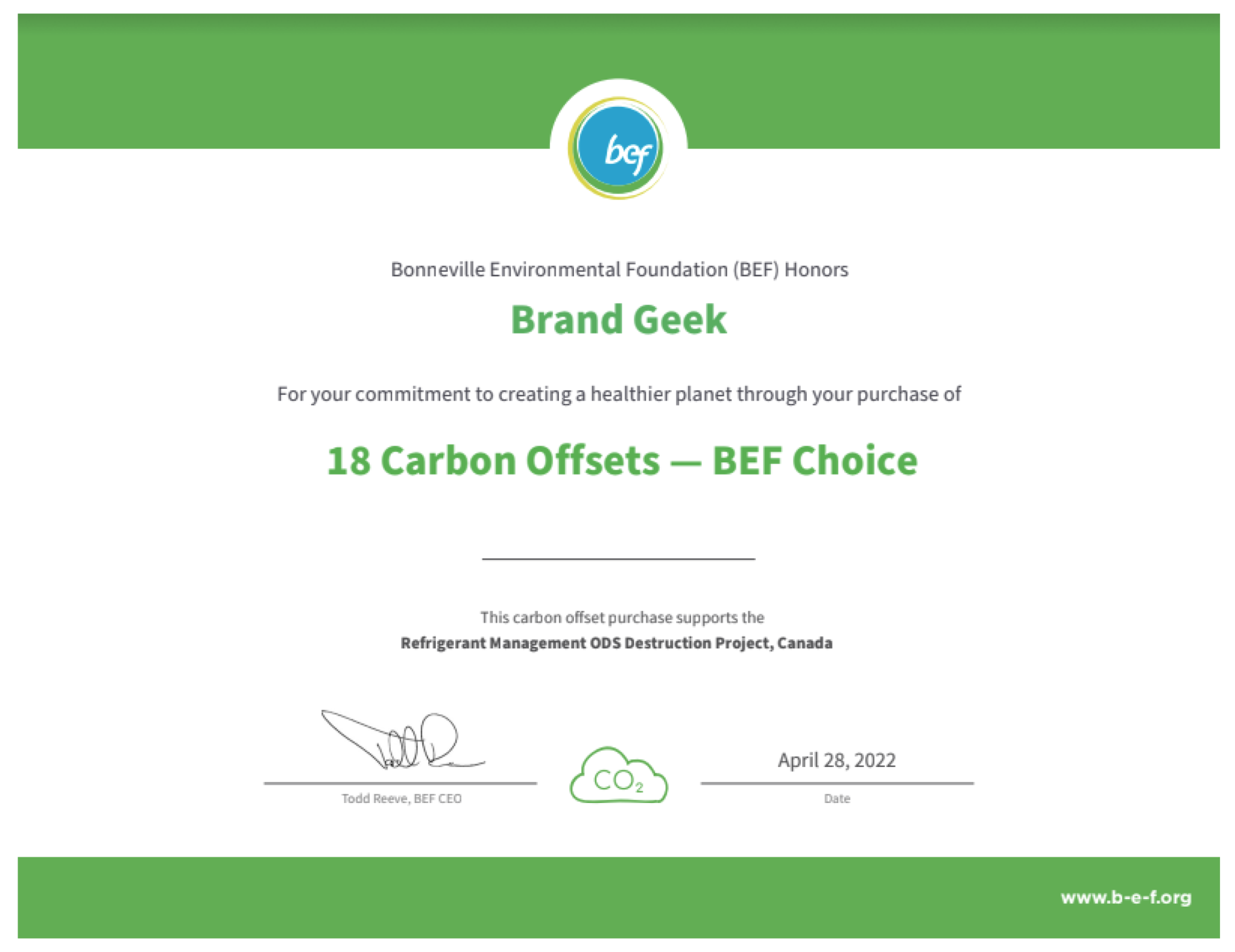Brandgeek proudly supports Mountain Area Preservation and is humbled to be…
Honda Held Accountable for False Advertising of Civic Hybrid
Sometimes small claims court is the way to go for dispute resolution. While you might think that to be the case only when the stakes are low, a California woman proved today that small claims awards can far exceed the redress offered in some class action settlements. Exactly one month ago today I wrote about Heather Peters’ one-woman crusade against Honda. Heather is a dissatisfied customer who purchased a 2006 Honda Civic Hybrid only to learn that the car didn’t even come close to its marketed fuel economy.
Heather is not the only one who’s ticked off about the misleading mileage claims made about the 2003-2009 Civic Hybrid and as a result Honda currently is defending five separate class action lawsuits in various California state courts. The false advertising suits against Honda claim that the company misrepresented the fuel economy of its 2003-2009 Honda Civic Hybrid model automobiles to the detriment of the purchasers of the car, who paid a premium for the car while not saving any money on gasoline.
Dismayed by the inadequate settlement offer made by Honda to members of the class action lawsuits ($100 + $1,000 rebate on a new Honda), Ms. Peters opted-out of the Class and filed her own California small claims suit for $10,000! She encourages others to do likewise on her DontSettleWithHonda.org website, which I bet a lot more people are considering since Heather announced the $9876.19 judgment awarded in her suit against Honda yesterday.
As reported on Huffington Post, “Peters, a former lawyer, said she is renewing her legal license after a 10-year lapse so she can consult with other Honda owners. She is also posting all the paperwork from her small claims suit online as a guide for others contemplating such suits.” Peters already posted the 26 page Order on her site. According to the Order, Peters v Honda took a total of 3 hours to try, which the court notes is longer than most small claims cases but expedited compared to other means of litigation for such a case (boy is that an understatement!).
The Order begins by reciting the nature of Peters’ suit: fraudulent representations of gas mileage and hybrid performance and fraudulent inducement to install a software upgrade that made things worse. Peters contended that the original mileage performance of her 2006 Civic Hybrid and the utility of the 2010 software update were misrepresented to her in advertising and otherwise causing her financial damage to the tune of $122,113.46, reduced to the $10,000 legal limit for small claims in California.
Ms. Peters represented herself (surely finding her former legal experience a bonus) and Honda was represented by a Technical Specialist (in what is unknown), Mr. Neil Schmidt. California law prohibits attorneys from appearing on behalf of clients in small claims proceedings, though it specifically allows attorneys to provide advice to a party to a small claims action, either before or after the commencement of the action. The court took care to note in its Order that its opinion is not precedential, clearly indicating that others may not rely on this opinion in any subsequent small claims suits against Honda (of which I predict an onslaught). The court acknowledged that Peters opted-out of the Lockabey v Honda Class action suit in San Diego Superior Court enabling her to seek redress in small claims court.
The court opined that Peters could have brought her action against Honda on 4 different legal grounds: (1) California Consumer Legal Remedies Act (Civil Code 1770 et seq.); (2) California Unfair Competition Law (Bus. & Prof. Code 17200 et seq.); (3) California false advertising law (Bus. & Prof. Code 17500 et seq.); and (4) Common law theories of misrepresentation (CA Civil Code 1571–1572 and 1709–1710 and related case law). After several pages of factual evaluation, the court found that Honda made several misleading representations and engaged in false advertising of its Civic Hybrid and awarded Peters damages for the cost of a new IMA battery, her fuel costs and diminution in value — the difference between what she paid for the hybrid vs what she would have paid for a gasoline powered Honda Civic. The Huffington Post article states Honda plans to appeal, so while the case isn’t anywhere near over yet, the score remains Peters 1 Honda 0.
 Truth in advertising pays in spades. Nowadays when facts can be checked quicker than ever it doesn’t pay to mislead one’s consumers. The truth ultimately gets revealed and companies who act disingenuously end up looking bad and losing market share.
Truth in advertising pays in spades. Nowadays when facts can be checked quicker than ever it doesn’t pay to mislead one’s consumers. The truth ultimately gets revealed and companies who act disingenuously end up looking bad and losing market share.




This Post Has 0 Comments